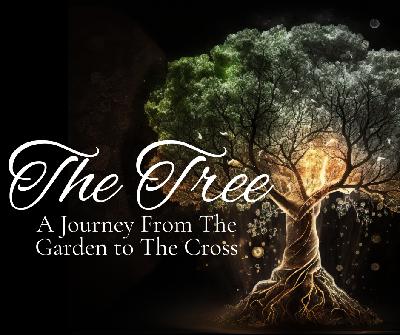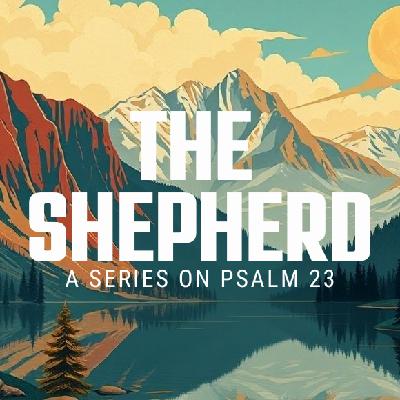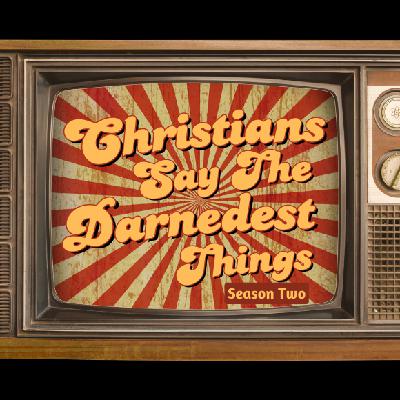The Delighting Shepherd
Description
The Bible begins with a garden, and it ends with a garden. In the first garden, Adam and Eve sinned and what they received and what we inherited was a curse. To Eve and all her daughters, God said: “I will greatly multiply your pain in childbirth, in pain you shall deliver children; yet your desire will be for your husband, and he shall rule over you” (Gen. 3:16 ). To Adam and all his sons, God said: “Cursed is the ground because of you; with hard labor you shall eat from it all the days of your life. Both thorns and thistles it shall grow for you; yet you shall eat the plants of the field; by the sweat of your face you shall eat bread, until you return to the ground, because from it you were taken; for you are dust, and to dust you shall return” (Gen. 3:17 –19). Essentially, what the curse would produce for them was the kind of suffering that sticks.
What do I mean by characterizing the curse with the kind of pain that sticks with you? If you have ever suffered from nerve pain, you know from experience the kind of pain I am talking about. There are some prescription medications that can help numb you to the pain, but nerve pain is very difficult to treat. If you have had sciatica, any form of back pain, a pinched nerve, or anything of that nature, you have experienced the kind of pain that sticks.
Sometime ago I read a quote from someone who said, “Our first parents’ bit into the forbidden fruit and our teeth have ached ever since.” That person was not referring to the kind of ache you might experience when you bit into something cold or hard, no... the kind of ache is the one I experienced after having all four impacted wisdom teeth taken out of my jaw in my late 20’s. The curse has left us with a kind of aching that sticks and is with us until our final breath, and it is this ache that leaves us with tears. Tears over our broken world, tears over a relationship, tears over wayward children, tears over the hurt and damage caused by parents, tears over the problems sin causes in our world and to our own selves.
The House that Adam and Eve Had
Adam and Eve enjoyed the presence of God in a Garden that was not at all dissimilar to the tabernacle the Israelites set up and tore down as they journeyed in the wilderness, nor was it unlike the temple Solomon built after David’s death. The tabernacle and temple were designed as a model to reflect Eden as the “house of the Lord.”
What Adam and Eve had in the garden was a gift from God that included the presence of God; In his excellent book, The Warrior Savior, Owen Strachan wrote of Eden, “From the start, God sought faithfulness on the part of his people through testing. He gave them a forest-garden overflowing with beauty and gladness, trees spilling unblemished fruit, but he also gave them a prohibition—one delivered under the starkest terms: death from disobedience.”[1]
The tabernacle and the temple served to remind God’s people not only of the beauty of Eden but the promise that His people would one day be where He is... in His presence. So, when David wrote the last line in Psalm 23, it was the promise of God to restore what was lost in Eden that he had his heart and eyes set upon. To be in the house of the Lord is to be with the Lord. David does not have a building in mind here, but to be in the presence of God. The house of the Lord is not a structure but wherever it is that He dwells. What made the loss of Eden so devastating and catastrophic was not Adam and Eve’s expulsion from the garden, but that they were driven away from the presence of God. In other words, what made Eden home was the presence of God not the other things that were a part of Eden’s beauty.
Before Adam and Eve were driven outside of the garden, God cursed the snake and promised the first couple that things would not stay cursed because He would send a Deliverer to reverse the curse of sin. The serpent entered God’s house (the Garden) and enticed Eve and her husband to doubt God and question both His goodness and faithfulness! In the garden the crafty and cunning snake spoke: “Has God really said, ‘You shall not eat from any tree of the garden?” Eve replied: “From the fruit of the trees of the garden we may eat; but from the fruit of the tree which is in the middle of the garden, God has said, ‘You shall not eat from it or touch it, or you will die’” (Gen. 3:2–3). The serpent then went in for the strike: “You certainly will not die! For God knows that on the day you eat from it your eyes will be opened, and you will become like God, knowing good and evil” (Gen. 3:4–5). Adam and Eve succumbed to Satan’s temptation and bit into the forbidden fruit, but that is not how the story ends!
God found the couple and He spoke to the great serpent what is a promise to all mankind: “And I will make enemies of you and the woman, and of your offspring and her Descendant; He shall bruise you on the head, and you shall bruise Him on the heel” (Gen. 3:15 ). Strachan observes: “In Genesis 3, the snake spoke first. But the snake did not have the last word in Eden, just as the devil will not have the last word in history.” Strachan continues: “When God shows up, the hiding stops, and justice rolls down.... the God who comes to earth is not only pursuing a mission of justice. This God is, even more, about to unleash a great rolling flood of mercy.”[2]
It is the promise of a better Eden through the promise of a snake-stomping redeemer that David had in mind when he wrote: “Certainly goodness and faithfulness will follow me all the days of my life, and my dwelling will be in the house of the Lord forever” (v. 6). Who can guide me, who can restore me, who will keep me, who will bless me, and who is it that loves me? It is the Lord of the 23rd Psalm and He will lead me to the place where I will be able to see Him face-to-face in His house forever.
The House that We are Promised
We have seen over and over again throughout this series that the Lord of the 23rd Psalm is Jesus the Good Shepherd, for He said of Himself: “I am the good shepherd, and I know My own, and My own know Me, just as the Father knows Me and I know the Father; and I lay down My life for the sheep” (John 10:14-15). The serpent is a thief, and Jesus said of him: “The thief comes only to steal and kill and destroy; I came so that they would have life, and have it abundantly” (John 10:10 ). The 23rd Psalm is the promise of the abundant life that can only be experienced through the good shepherd. The abundant life includes the table He has prepared before me in the presence of my enemies (v. 5a). The abundant life is to have His favor in the form of the oil He has anointed my head with and the cup he has placed in my hand that is overflowing with His blessing! This is what Paul meant when he wrote Ephesians 1:3, “Blessed be the God and Father of our Lord Jesus Christ, who has blessed us with every spiritual blessing in the heavenly places in Christ...” The cup of God’s favor is Ephesians 1:7, “In Him we have redemption through His blood, the forgiveness of our wrongdoings, according to the riches of His grace.”
Now, think again what it is that the 23rd Psalm is saying to those of us who have been found by the good shepherd.
The good shepherd leads me: “The Lord is my shepherd, I will not be in need. He lets me lie down in green pastures; He leads me beside quiet waters.”
The good shepherd restores me: “He restores my soul; He guides me in the paths of righteousness for the sake of His name.”
The good shepherd keeps me: “Even though I walk through the valley of the shadow of death, I fear no evil, for You are with me; Your rod and Your staff, they comfort me.
The good shepherd blesses me: You prepare a table before me in the presence of my enemies; You have anointed my head with oil; my cup overflows.
The good shepherd loves me: Certainly goodness and faithfulness will follow me all the days of my life, and my dwelling will be in the house of the Lord forever.
What does this all mean? There are no green pastures or quiet waters without Jesus leading you. There is no restoration for your soul or the righteousness you need apart from Jesus as your guide. There is no walking THROUGH the valley of deep darkness apart from Jesus keeping and guarding you. There is no blessing and treasuring of God upon you without Jesus. Finally, there is no goodness, faithfulness, and a better Eden apart from the God who loved you so much that He sent His one and only Son!
Why did David long to dwell in the house of the Lord? What is it that makes heaven great? For what reasons does the promise of a better Eden outweigh all the sorrows of this world? These questions have nothing











